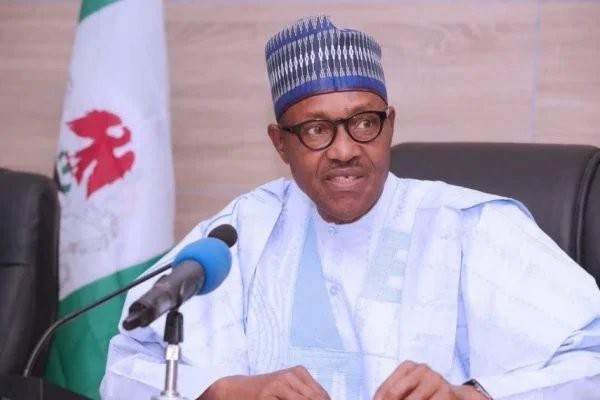The Indigenous People of Biafra (IPOB) has issued a strong reaction to the recent death announcement of Nigeria’s former President, Muhammadu Buhari, describing it as a delayed affirmation of longstanding allegations made by its leader, Mazi Nnamdi Kanu.
Diaspora Digital Media (DDM) gathered that the group responded shortly after Buhari’s former spokesperson, Garba Shehu, confirmed the passing of the former Nigerian leader. The confirmation reignited debate over persistent claims that Buhari may have died as far back as 2017 during his presidency.
In a statement released by IPOB’s spokesperson, Comrade Emma Powerful, the organisation described the development as a vindication of Kanu’s consistent assertions regarding the late president’s health and identity.
IPOB emphasized that Kanu had raised concerns as early as 2017, questioning whether Buhari was still alive or had been replaced by a double during his extended medical stay in London.
The IPOB statement noted that public skepticism was high at the time, and Kanu’s claims were widely dismissed by government officials and mainstream media.
However, with Garba Shehu’s recent comments confirming that Buhari faced severe health complications during his presidency, IPOB now argues that Nigerians must revisit the events and leadership dynamics between 2017 and 2023.
“Mazi Nnamdi Kanu spoke on sensitive matters that many dismissed at the time,” IPOB stated.
“Recent developments only highlight the need for transparency and open dialogue in governance.”
The group stopped short of directly addressing the conspiracy theories surrounding the late president’s prolonged medical absence but insisted on the need for institutional honesty, public accountability, and historical clarity.
IPOB also used the opportunity to reiterate its call for the immediate release of Mazi Nnamdi Kanu, who has remained in detention despite numerous legal and humanitarian appeals.
“This is a moment for the country to reflect on the importance of truth in leadership, and the consequences of withholding information from the public,” the statement added.
The backdrop to this controversy dates back to early 2017, when President Buhari spent over 100 days abroad on medical leave.
During that period, Kanu and other IPOB members claimed that the man who returned to Nigeria was not Buhari, but an impostor, a claim repeatedly denied by Nigerian authorities and considered by many as unsubstantiated.
Nevertheless, Garba Shehu’s latest remarks, in which he acknowledged the seriousness of Buhari’s health challenges, have triggered a wave of public discourse and raised fresh concerns about transparency during that period of leadership.
Political observers note that while Shehu’s statement did not corroborate any claims of impersonation or deception, it may further erode public trust in past leadership.
There are growing calls from civil society groups and human rights advocates for an independent inquiry into key decisions made under Buhari’s administration between 2017 and 2023.
IPOB concluded its statement by calling for a national reckoning that prioritizes truth and justice over political expediency.
The group stressed that Nigeria’s future depends on a leadership culture rooted in honesty, openness, and public accountability.
As public reactions continue to mount, the Nigerian government has yet to release an official statement addressing the implications of IPOB’s claims or whether further investigations will be considered.
👇👇👇
Follow DDM Whatsapp channel







